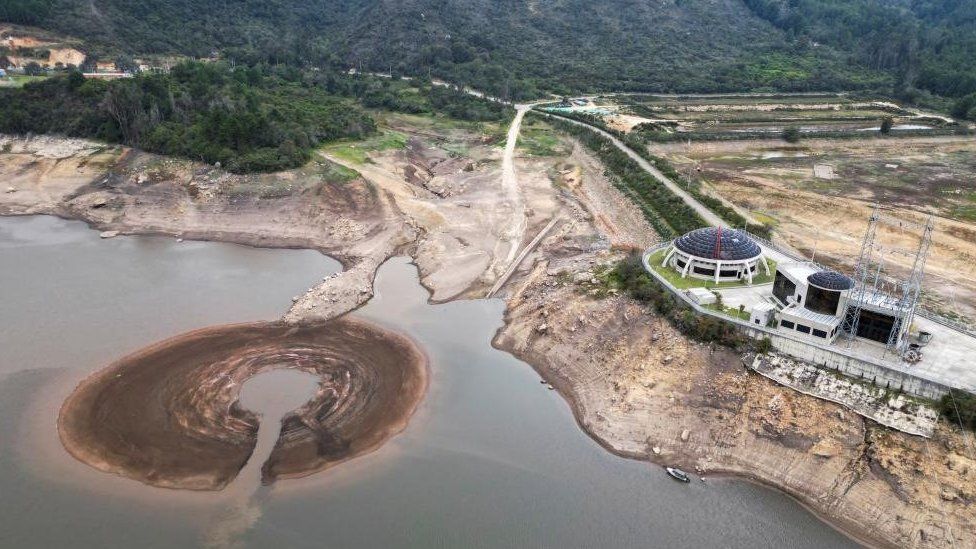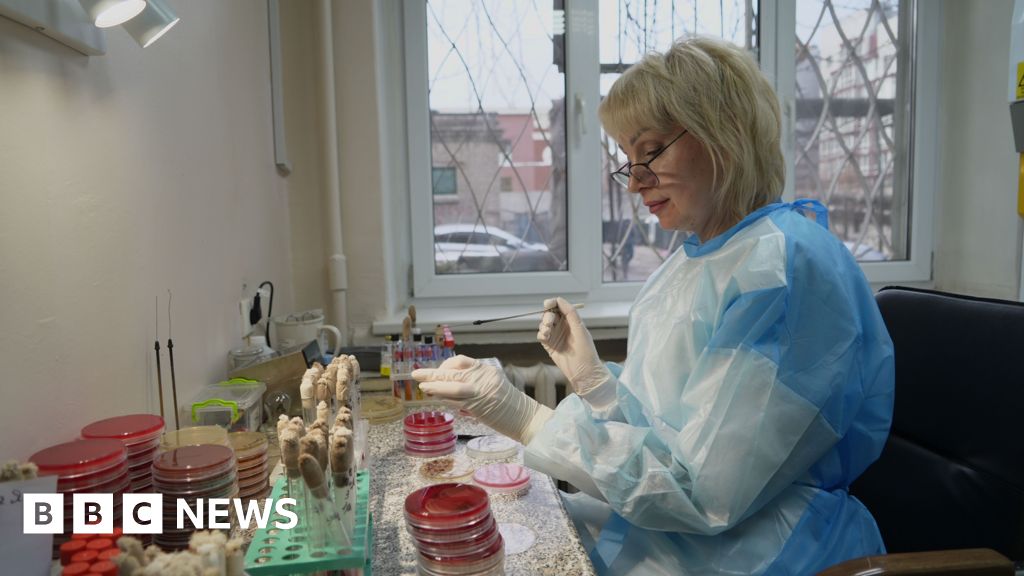ARTICLE AD BOX
 Image source, Reuters
Image source, Reuters
About ten million residents of the Colombian capital Bogota are being forced to ration water amid crippling shortages due to a severe drought.
It comes as the El Niño climate phenomenon pushes reservoir levels to their lowest point in decades.
Officials have split the region around the capital into nine zones - each zone taking turns to switch off water services for 24 hours.
Hospitals and schools are exempt. The city's mayor called the situation dire.
Restrictions announced earlier in the week came into force on Thursday. Authorities will reassess the situation every two weeks under the rationing plan.
"Let's not waste a drop of water in Bogota at this time," Mayor Carlos Fernando Galán said in a press conference to announce the measure.
"That will help us so that these restrictions can be lifted more quickly or reduced," he continued.
A lack of rain and unusual heat has seen Colombia's reservoirs dry up at an alarming rate.
The Chuza reservoir, part of the system which provides around 70% of the city's water, is at less than 17% capacity.
The mayor said this was the lowest point in 40 years.
Colombian President Gustavo Petro took to Twitter/X on Thursday to say he had ordered "a substantial change" to protect water resources over the next 30 years.
He also warned against "unhindered urbanisation" and criticised the "pillaging" of natural aquifers by the agriculture and construction industries.
Meanwhile, residents are cutting down on their water usage.
"There are things we can no longer do, like washing the car," Clara Escobar, who lives in the city's suburbs, told AFP news agency.
"We shower less" and "we wash clothes [only] when necessary", she said.
Experts have tied the issue, in part, to the current El Niño period, in which global temperatures typically increase.
Mexico City and Uruguay's capital Montevideo have also faced water shortages in recent years.
Climate change has also been deemed a major driver of drought, as well as rapid urbanisation and poor infrastructure.
Not all droughts are due to climate change but excess heat in the atmosphere is drawing more moisture out of the earth and making droughts worse.
The world has already warmed by about 1.2C since since the industrial era began and temperatures will keep rising unless governments around the world make steep cuts to emissions.
Image source, Getty Images

 9 months ago
65
9 months ago
65








 English (US) ·
English (US) ·